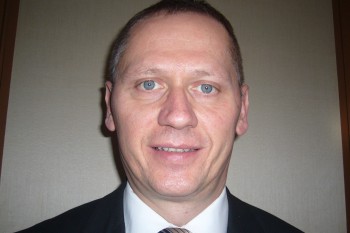Events
Beauty, Heritage, Sports and Tourism…Enhancing Our Visibility
—– It has been 25 years since Croatia regained its independence from the former Yugoslavia. Please tell us the current features of Croatia.
Croatia has beautiful and well-preserved nature, and rich historical and cultural heritage. The natural environment of the country is protected under various mechanisms such as UNESCO World Heritage; and we have the highest proportion of preserved areas among the EU nations. We also make high-quality products. Croatia is known for its wine, olive oil production, food products; ship building, pharmaceutical and chemical industries, and the world’s leading demining technology. Also, the Rimac Concept One is the world’s fastest electric car that is made in Croatia. As it is diverse in nature and heritage, Croatia also has a variety of regional cuisines. It is a democratic country that upholds the highest standards of the rule of law, human rights, and freedom of the press , and is the newest member of the NATO (2009) and the EU (2013).
—– As a result of the ethnic conflict in the 1990s, the ethnic composition in Croatia has changed. Has the inter-ethnic confrontation been resolved?
After Croatia’s declaration of independence in 1991, Serbian nationalists, wanting to establish Greater Serbia, and the Yugoslav People’s Army instrumentalised by then Serbian leader Milošević attacked Croatia and occupied one third of the territory. The Homeland War which continued from 1991 to 1995 was not an ethnic conflict or a civil war, but was the struggle to defend and then liberate our country. In 1995, the war ended and Croatia reclaimed the occupied area. The proportion of the Serbian population in Croatia decreased after the war when part of the Serbian population decided to leave as a result of then Serbian regime propaganda. Today Serbs make 4-5% of Croatian population and they enjoy a high level of minority rights. Serbian and other minorities serve as public officials, including holding high government positions. Croatia is one of the most successful countries in ethnic reconciliation in the world after the World War II. The feeling that the Croats have toward the Serbs is good and friendly.
—– How do you see the development of Croatia-Japan relations? Would you tell us about your current challenges and responsibilities as the Ambassador to Japan?
Croatia and Japan are friendly and like-minded countries. The relations are good in all areas such as politics, culture, education, sports, tourism, and economy. But, the trade and investment are the weakest points of our relations, and so these areas in our economic relationship must be strengthened. The Croatian imports to Japan include bluefin tuna, which accounts for almost 90%, as well as timber, wine, and olive oil. We import high-quality products from Japan. As the ambassador, my top priority is branding the country and making it better known. In particular, I want to raise the visibility of our wine, food, cars, pharmaceuticals, and cosmetics. The key words to describe Croatia are “beauty, heritage, sports, and tourism ”. In addition to tourism promoting events and trade & investment seminars, we are having honorary consulates in Osaka and Naha to promote exchanges between the countries. We are also hoping to start working with Japan on the agreement to avoid double taxation and finalizing meat and meat products import arrangements.
—– Croatia is the newest member of the EU and NATO. What is the effect of accession to the EU on Croatia?
We implemented many reforms to improve Croatia before we joined the EU. And it was like coming back home to the European family. The EU is the most successfully integrated organization, and we are very proud of being a member. We now enjoy access to the single market of 510 million people and freedom of movement, and can advance our national interests. When we become part of the Schengen Treaty, we will have even more freedom of movement within the EU. The Croatian economy is recovering since 2015; but the introduction of the Euro, which our government is aiming at, will be in the next decade. Although the EU is facing the problems such as the Brexit and migrant issue, Croatia believes that the future is bright for the EU and it will become even more effective, functional, and influential.
—– How does the Croatian government handle the refugee influx from the Middle Eastern and North African regions?
During the war, 22 years ago, Croatia hosted about 800 thousand refugees from neighboring countries and internally displaced persons. The country with the population of 4.5 million handled these people and provided humanitarian assistance. In 2015, about 900 thousand migrants and refugees who were heading for Western Europe passed through Croatia. As a transit point, Croatia provided the refugees with humanitarian assistance in an orderly manner, and safely sent them on to Slovenia and other neighboring countries. In 2016, the number of migrants to Croatia was as small as few hundreds. The present-day Croatia has no issues of migrants and refugees, and is a safe country free of terrorism. It had been witnessed by more than 16 million tourists we hosted last year alone.
